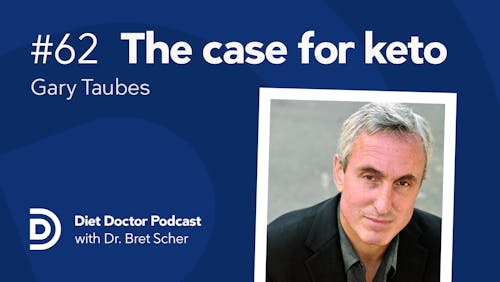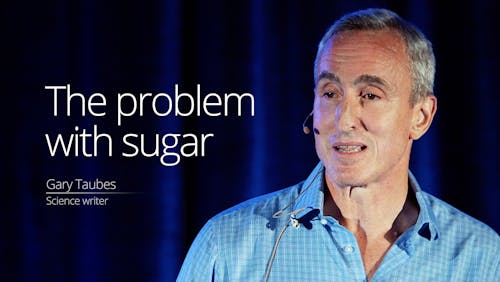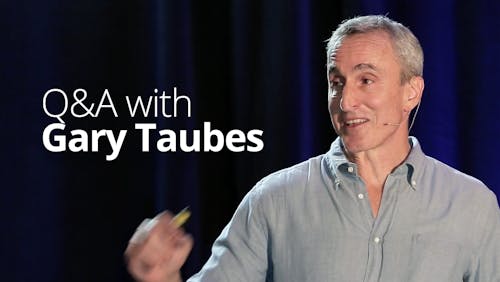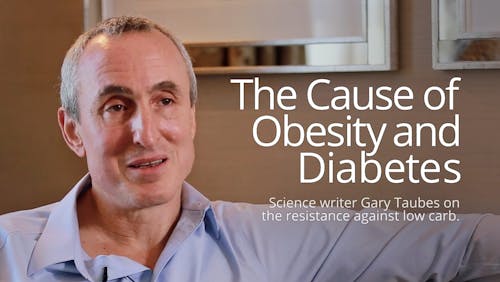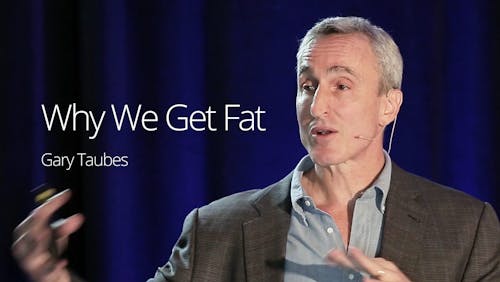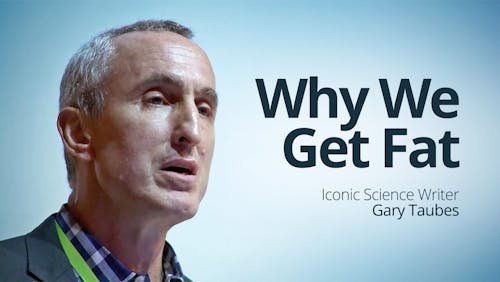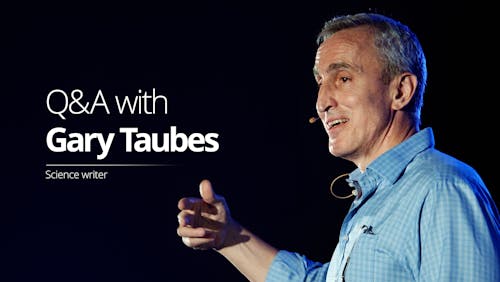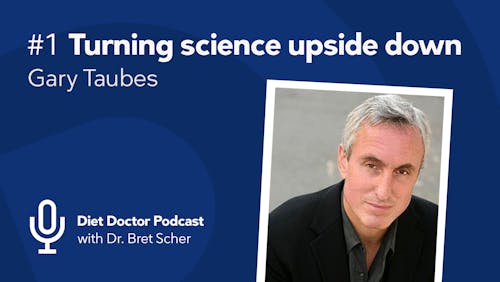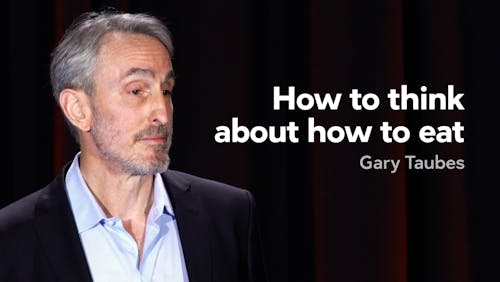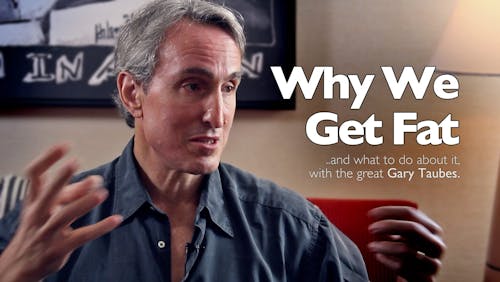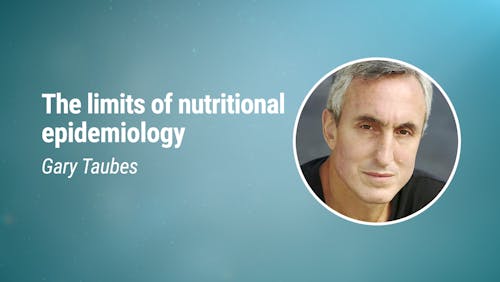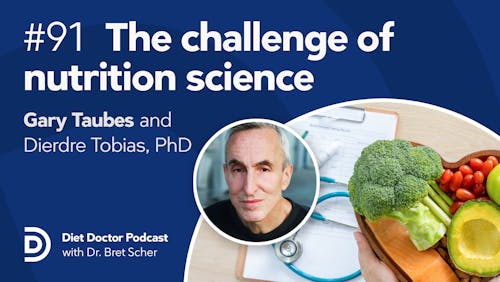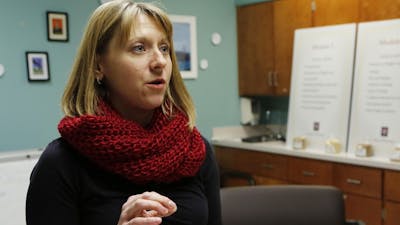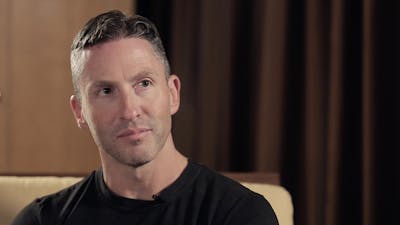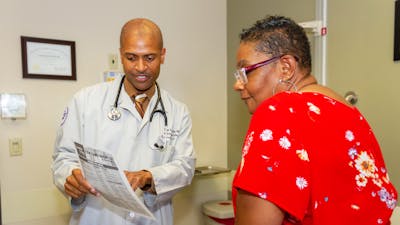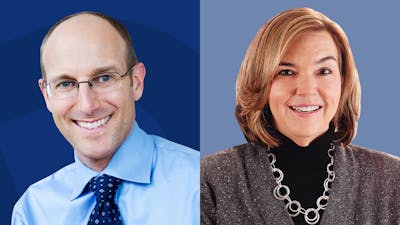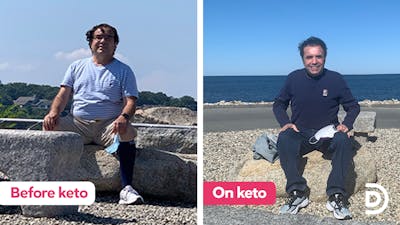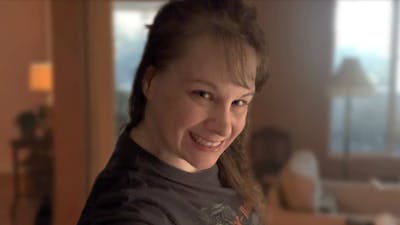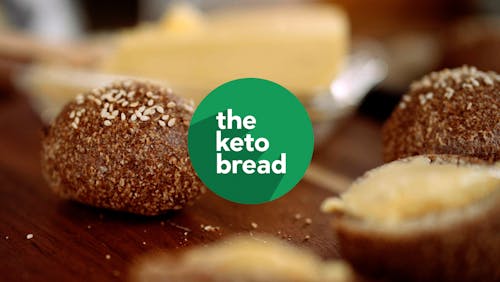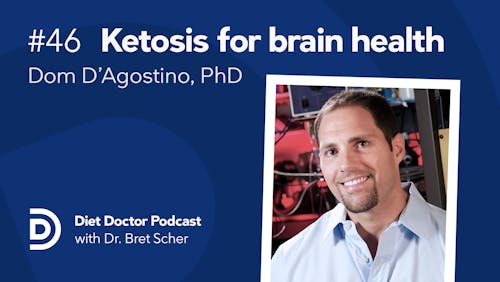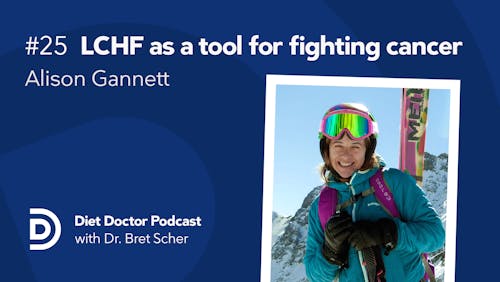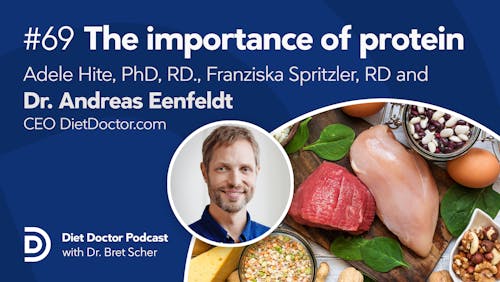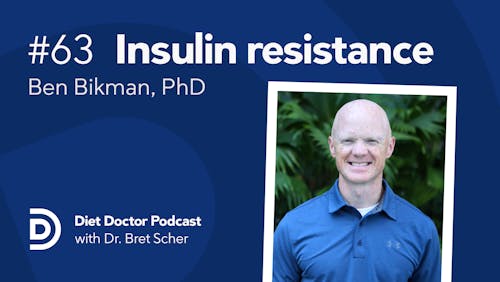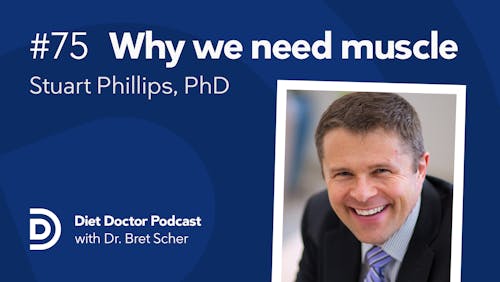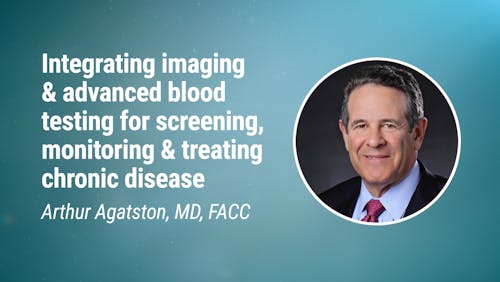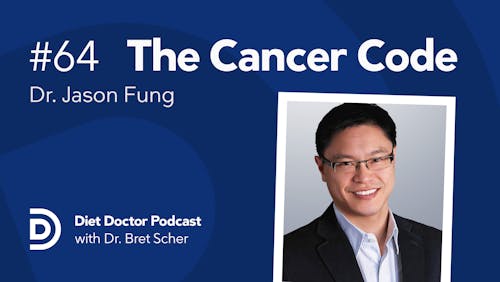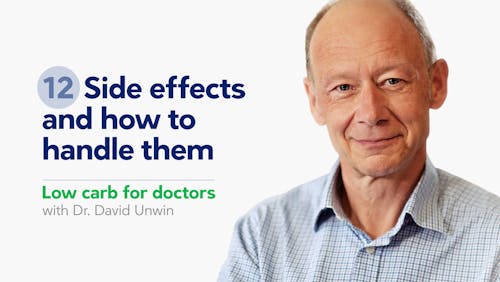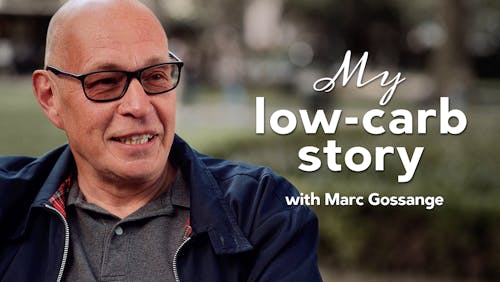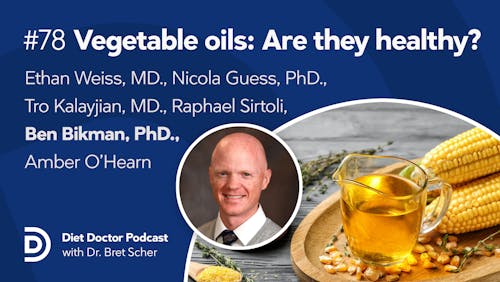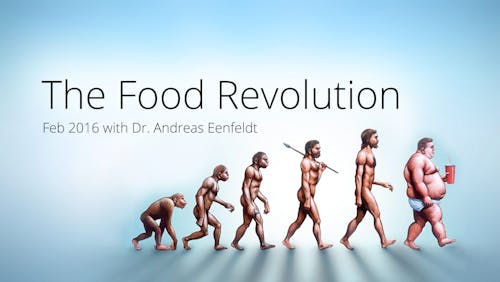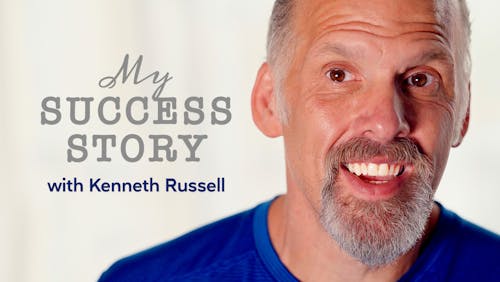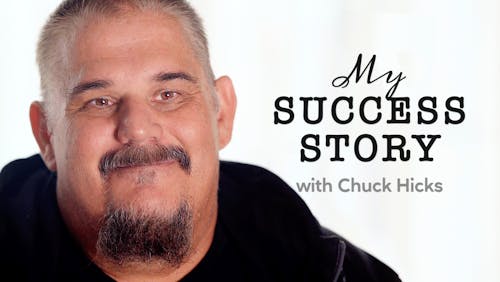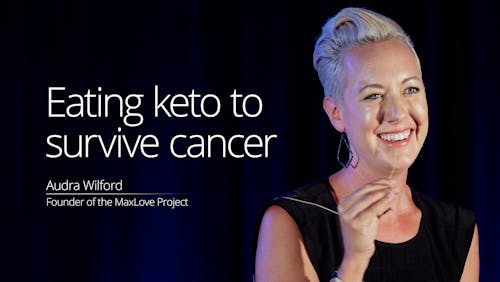Gary Taubes: Crusading champion for better nutrition science
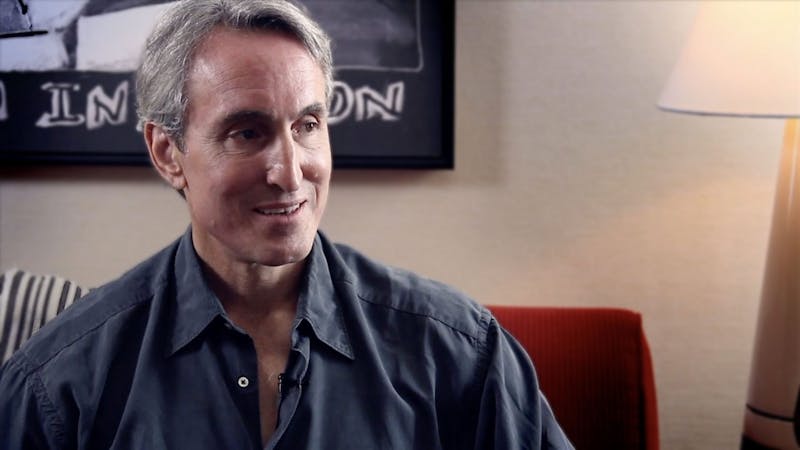
Over the last two decades, investigative science journalist Gary Taubes has repeatedly put his tenacious, meticulous research and persuasive writing skills towards debunking the bad science and prevailing dogmas in nutrition research. This has won him many fans, but also many enemies, or at least harsh critics.
In 2002, his New York Times Magazine article “What if it’s all been a big fat lie” was almost revolutionary for the time, exposing the weak science behind recommendations to eat a low-fat diet. In his 2007 bestseller, Good Calories, Bad Calories, he argued in extensive detail that it is not the quantity but the quality of the calories we eat that drives obesity and the chronic diseases such as diabetes and heart disease associated with it. His 2011 bestseller, Why We Get Fat, followed on that previous book’s theme, distilling key facts and providing new arguments for a hormonal cause of obesity, in which the consumption of sugar and carbohydrates drives insulin resistance, which in turn drives obesity and diabetes. His 2016 book The Case Against Sugar presents a compelling, fact-filled argument, going back in history up until the present day, that sugar is a poison that is the likely root cause of obesity, diabetes and other chronic health concerns.
Gary has been out in front, leading issues in obesity and diabetes research for years. In fact, if the growing low-carb high-fat community of experts and advocates who write and blog about this way of eating were an expanding peloton of cyclists in the Tour de France, almost all would be slipstreaming behind Gary Taubes. He has aggressively led the pack, fighting the headwinds, charting the course and setting the pace for two decades.
Here is his story.
Controversial? You bet
Earlier this year, Gary was invited to speak at a conference on the relationship between obesity and cancer, hosted by The American Association for Cancer Research. He was asked to be part of a final panel, the last slot on the last day, as a special guest debating population-level, public health approaches to address obesity and cancer risks. His contribution: the scientific evidence for reducing or eliminating sugar and carbohydrate consumption as a way to prevent and treat obesity and so reduce the risk of cancer, as well.
The conference organizers asked him, however, to not be “too controversial.”
“I said: “Sorry, you do not ask me to be on a panel if you don’t want controversy,” says Gary.
The award-winning investigative science journalist, and former amateur boxer, now 61, does not mince words or pull his punches, which often upsets or affronts the audience to whom he is speaking.In one famous 2009 speech to an audience of obesity and nutrition researchers, which Gary himself blogged about, an older researcher in the audience asked during the Q&A: “Mr. Taubes, is it fair to say that one subtext of your talk is that you think we are all idiots?”
Gary’s response at the time: “I smiled, and I said, no, what I believed was that researchers of his generation – those who would have started their careers in the 1970s – had inherited a paradigm of obesity from the generation that preceded them. And this paradigm seemed so obvious (we get fat because we take in more calories than we expend) that they never thought to question it.”
In his blog, however, he was much less political in his answer to that question: “Yes, it was fair to say that I think a large body of otherwise very smart people, PhDs and MDs all, were operating with suboptimal intelligence.”
That sort of unguarded response can garner him enemies among the scientists and public health officials he is trying to convince with his interpretations of the research data. Gary, however, does not apologize for his combative style. He is all about the need for everyone, no matter what their standing, to constantly question what they believe to be true. His firm belief: we need to continually marshal all the available evidence, evaluate its quality and accuracy, and repeatedly attempt to disprove our own hypotheses — not defend them, nor prop them up with bad science, nor dismiss new results that don’t fit our views. Question everything.
Says Gary today: “I always seem to be making arguments that people find disturbing and contrary to their belief systems.”
Defining obsession: good and bad science
His defining passion for more than 30 years — almost all his working life as an investigative science journalist — has been to illuminate the difference between good science and bad science; to challenge assumptions, test hypotheses, and truly discern what is known and not known about any scientific phenomenon.
“That is my obsession: good science and bad science. That is what all my books are about. This is what I think about virtually all the time… how hard it is to do good science and how easy it is to get the wrong result.”For 20 years now, Gary has been a leading international voice exposing the bad science that led to the demonization of saturated fat and gave sugar and processed carbs an unearned pass. With his scrupulous research and fact-filled writing, he has railed against the dominant “a calorie-is-a-calorie” theory of energy balance and exposed the fallacies and fictions around the dodgy, at times non-existent science, that those who are who are overweight or obese just need to eat less and move more.
Diet Doctor founder Dr. Andreas Eenfeldt notes Gary’s contribution has been extraordinary. “I’ve lost count of how many people, including doctors, who got interested in low carb after reading Gary’s work. I know that was true for me.”
Andreas became passionately interested in low carb around 2002 and quickly discovered Gary’s articles.
“But it was his 2007 tour-de-force Good Calories Bad Calories that changed my life and inspired me to start the Swedish blog that grew into Diet Doctor. Without Gary, the Diet Doctor company might never have existed.”
Aerospace science’s loss, nutrition science’s gain
While he now lives in California with his wife and two pre-teen sons, Gary was born and raised in Rochester, New York. He was the second son of a Xerox researcher who was instrumental in developing the science and technology of photocopying. Gary grew up devouring science fiction and gum-shoe detective novels. Like many boys in the 1960s, he wanted to be an astronaut. He went to Harvard (his older brother is a professor of mathematics there), and earned a physics degree, while being an Ivy-league athlete on the college’s football team.
He explains his decision to leave physics behind with a simple story: “I wasn’t very good at it. I got a C minus in quantum physics and my advisor politely suggested I find a different career path.”
Still following his astronaut dream, he then earned an aerospace engineering Masters degree at Stanford University. “I wasn’t very good at that, either.”
He found his calling, however, in investigative journalism. He was inspired to pursue this path by reading All the President’s Men, the story of how Washington Post journalists Bob Woodward and Carl Bernstein doggedly pursued the Watergate story in the 1970s. He moved to New York to earn a Masters in Journalism at Columbia University, and wanting to stay in New York, took a job as a science writer at Discover magazine by 1983.
He sees a strong similarity between the roles of scientist and investigative journalist. “Investigative journalism is about finding reality. There is a confusing picture and people are saying different things, and you’re looking to find out what the truth is. It is very much like science — you don’t write anything until you can independently replicate or document it.”
Leading science writer
It was his is talent for his probing and interrogating the truth, his intensive research, and his comprehensive writing in the 1980s and early 1990s, that soon had him recognized as one of the leading science writers of his, or any, generation. It earned him an unprecedented three Science in Society Awards from the National Association of Science Writers.
His obsession with the differences between good science and bad science led him to write books first about particle physics and then cold fusion. It is what led him to examine the limits and challenges to good epidemiologic research, and write articles about what is known and not known about the health impacts of both electromagnetic fields and of salt consumption. And by the late 1990s, he turned his efforts to the faulty science around nutrition and obesity.
That path may seem disparate, but it was a very logical progression, he says, albeit one with considerable serendipity involved. After researching and writing about one area of dodgy or shoddy science, said Gary, “scientists would contact me and say, ’if you think that science is bad there, check out this ….”Whatever field he investigates, Gary says, he approaches all issues as an outsider with a set of critical thinking skills unburdened by the prevailing assumptions that might dominate a field. Many science writers feel their job is to translate science so it is understandable to the common masses. Gary’s best work, he says, has come about when he felt the need to question scientific authorities, to challenge their beliefs and assumptions and interrogate their thinking. “I never assume that what someone is telling me is necessarily true just because they are currently recognized as an authority. It’s a bad habit, but can be helpful to a journalist.”
Soft science, hard truths
In 2001, Gary wrote an article for Science magazine on “The Soft Science of Dietary Fat“, which investigated the evidence-base condemning saturated fat, concluding that it was insufficient. Gary calls this first article his “prelude” to the much larger, controversial, and more widely-read 2002 article in the prestigious New York Times Magazine, “What if it’s all been a big fat lie”, in which he clearly set out the evidence that the burgeoning epidemic of obesity and diabetes at the time was directly related to the shunning of fat and the corresponding rise in the food supply of carbohydrates and perhaps sugar and high-fructose corn syrup specifically.
Many in the low-carb community can still recall reading that revolutionary article — I certainly can — and being shaken by its bold and provocative approach. It was one of the most controversial articles the magazine had ever run. Gary was astonished at the polarized reaction: the vehement criticisms attacking his personality, integrity and professionalism; the ardent fascination and legions of fans clamoring for more.
Within a few weeks of that article’s publication Gary was fielding offers from publishing companies for a book, with advances climbing higher and higher. He accepted the second highest offer — $700,000 – giving up a significant sum to go instead with the editor and publisher he preferred and is still working with today. The book, Good Calories, Bad Calories, with his exhaustive research, took five years to produce and is a classic in the field of LCHF literature. The two books that followed were built on the foundation of research from the first, and have been equally important and well-reviewed. He is now working on a fourth book on an LCHF topic — with the goal that this will be a simpler, straightforward support for doctors and patients who want to try this way of eating to improve their health.
For all the critics who accuse him of getting rich on his writing, of just doing it for the money, nothing could be further from the truth, he says. Research and writing is a lonely, isolating, and relentless task, often poorly compensated. There are certainly easier ways of making a living. His $700,000 advance paid for four years of working and supporting his family in Manhattan, he notes. But the book took him five years. His critics, however, constantly attack him. “Over the years you get used to it. I wish the level of discourse were higher. But it is the nature of the beast.”
Obligation to try the diet
Back in 2000, when he first started writing about low carb high fat, Gary naturally tried the diet, motivated by an economist at the Massachusetts of Institute of Technology who was eating it himself and said the diet had to be tried for the experience to be understood. He lost weight effortlessly for the first time in his life. He corrects any reporter, however, who casts his story’s chronology as trying the diet first, having it work for him, and then focusing his research and writing around it. It was the other way around: as a researcher investigating this area of science, he had an obligation to try it, which then informed his opinion.
He confesses he had a tendency in his earlier years to occasionally binge on carbs. “I am the sort of person who can eat a whole loaf of freshly baked bread and then go into a food coma.” After his 2001 piece in Science he slipped for a bit, adding starches, pasta, and desserts back in, gaining weight and feeling worse.
He now chooses to eat LCHF daily. He knows it makes him feel healthier and lighter, but he clearly explains that while he knows he feels better, with generally better health markers such as blood glucose and BMI, no one knows if this diet will make him, or anyone, actually live longer. The rigorous long-term science has not been done and is almost impossible to do.
“You can eat this way and change your life, lose weight and reverse diabetes, and feel great. But will you live longer? Without the long-term randomized studies we will never know. But I think we have to ask, if it makes people so much healthier now, would someone choose to feel worse today for the future possibility of maybe a few extra years?” His personal answer is a definite no. “I make this choice in full awareness of what is known and not known.”He clearly described this position in a recent opinion piece in Toronto’s Globe and Mail, in which he posed: “Is it really possible that I or anyone else will live longer as a lean person with bacon and butter than obese and diabetic without them? I think it’s a good bet — I hope so — but my reporting and experience has biased me.”
Interestingly, some of my Canadian friends who read the piece — and have been on the fence around LCHF for years because of worries about eating higher fat — appreciated his honest assessment. They decided to begin the diet the next day. One said to me: “I really liked how he laid out what is known and not known. I then felt more comfortable personally making that choice for myself.”
Difficulty of doing good research hits close to home
With his passion for good science, Gary’s recent experience with the organization “NuSI” (Nutritional Science Initiative) that he founded in 2012 with Dr. Peter Attia has been “a learning experience.” The goal was to fund and conduct the best possible nutrition research to answer some key questions. Backed by a rich donor, they set out to do so. The results from two NuSI-funded studies have been published. The results from two more are being written up now.
Much has been written, however, about the first of these studies, the famous “Kevin Hall metabolic ward study”, released in July 2016. The NuSi-funded, $4.5 million study put 17 overweight or obese men in a metabolic ward for eight weeks, feeding them for the first four weeks a healthy version of the standard American diet and then, for the last four, a very low carb/high fat diet that had the same number of calories (called isocaloric diets). While the LCHF dieters had slightly greater weight loss and increased their resting energy expenditure, the researchers concluded that it was not physiologically significant and that therefore the study somehow proved “a calorie-is-a-calorie” and that the insulin, or hormonal theory, of obesity “was dead.”
Gary has disagreed with their interpretation of the data, although, having helped fund the study, he’s hesitant to criticize it to a reporter. Here at Diet Doctor, Dr. Jason Fung wrote a scathing takedown of the researchers’ interpretation. Other criticisms, too, came from Harvard researcher Dr. David Ludwig and low-carb pioneer Dr. Michael Eades. The medical news site, Medscape, also did an analysis of the divisions between interpretations of the results.
Says Gary, looking back over this experience, ruefully: “We funded exactly the kind of science we are trying to prevent.” The study was funded and predicated on the assumption that the researchers could get the subjects weight stable in the first four weeks, so that they knew precisely how many calories to feed them daily in the next four. Instead, says Gary, the subjects lost weight consistently during this “run in”, which made the results virtually impossible to interpret. “Why did this happen? Nobody knows?” Gary says. “The investigators had their assumptions, their hypotheses, but good science is about testing hypotheses, not about assuming they’re true because they fit your preconceptions. The investigators chose the latter route. We had hoped for better.”
If the subjects had been rats rather than humans, Gary said, a reasonable approach would have been to “euthanize the rats, try to figure out what went wrong, and then do the experiment again. But when your subjects are humans and the study costs $4.5 million, you cannot just start over. Nobody will give you another $4.5 million.” His reluctant conclusion about the whole affair: “Maybe these kinds of questions really are beyond the ability of science or at least these scientists to rigorously answer.”
Andreas Eenfeldt shares Gary’s views that we have to constantly question our assumptions and feels that some of the theories in Good Calories, Bad Calories were “perhaps oversimplified.” But the idea that body fat is hormonally regulated, with insulin as a key controlling hormone, appears as fundamentally correct today as ever, he says. “That points to sugar and refined carbohydrates as a primary cause behind the obesity epidemic – a viewpoint that more and more people now accept,” says Andreas.
Internet will spread new knowledge
While his life crusade is illuminating good science vs bad science, Gary says he tries not to get pessimistic about the future. He recognizes the difficulty, in modern times, for science to be self-correcting. He sees it as almost impossible for scientists, working, say, in nutrition research, to see a result that has been published among the thousands of articles published each month, and say to themselves: “oh, okay, I have to now change the way I think!” They can always find an answer that confirms their bias in the other thousands of articles.
What he does think will make a huge difference to individual health and wellness is the information spread by the internet, particularly through sites like Diet Doctor. People now have the capacity to see the range of information, easily go back decades in the research literature, weigh the evidence, and decide themselves whether to experiment with the LCHF diet — all without the gatekeepers of doctors and scientists telling them what to think and do.“It is actually wonderful to see. I feel like the world is changing,” he says.
He likens the informational power of the internet to the advances in knowledge and understanding that arose after the discovery of the telescope, or of radio waves, or of any other technology that reveals new information previously hidden. “Science moves forward when new technologies come along that allow you to look at something you have never seen before.”
For example, back when he wrote the NYTimes article in 2002, he notes, anyone reading it who wanted to then try the diet would likely have everyone around them, including their doctor, tell them it was a mistake, no matter how much weight they might lose. “You would be convinced you were killing yourself. There was no recourse, no other information, nobody arguing otherwise.”
Now, however, the experiences of thousands of other people, the research, the counter arguments of experts are all readily available through a search engine. “The rigorous scientific studies we need to properly answer all the questions will all too likely never be funded and done. But people can now easily learn about the diets, try it, lose weight, and get much healthier. They can see for themselves”
As he tweeted in late February 2018: “The debate used to be whether low-carb diets were deadly. Now it’s whether low-fat diets are as good as low carb (at least, when both are restricted in sugar and high GI grains). That’s progress.”
—
By Anne Mullens
Gary Taubes
Earlier in the series
